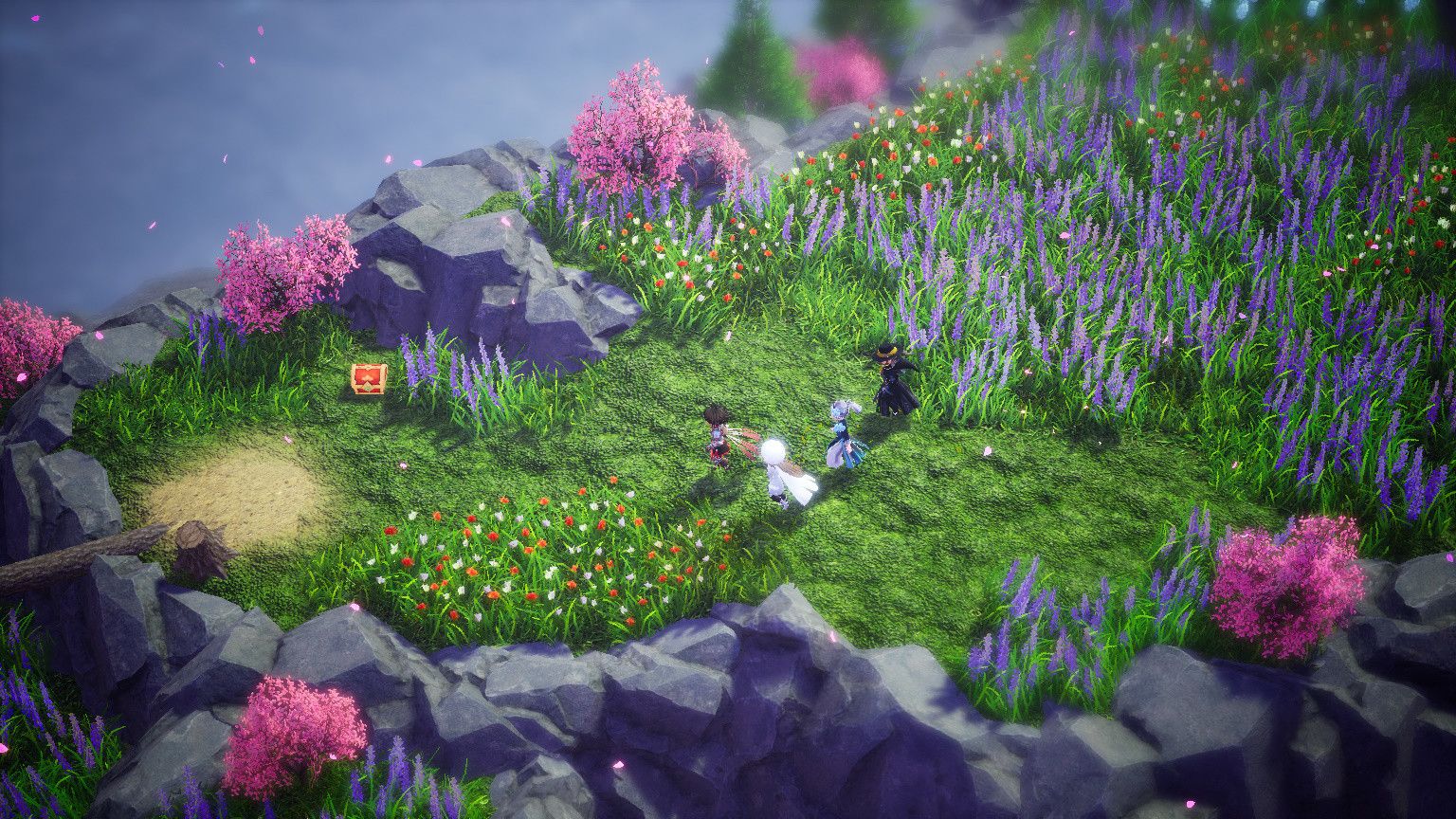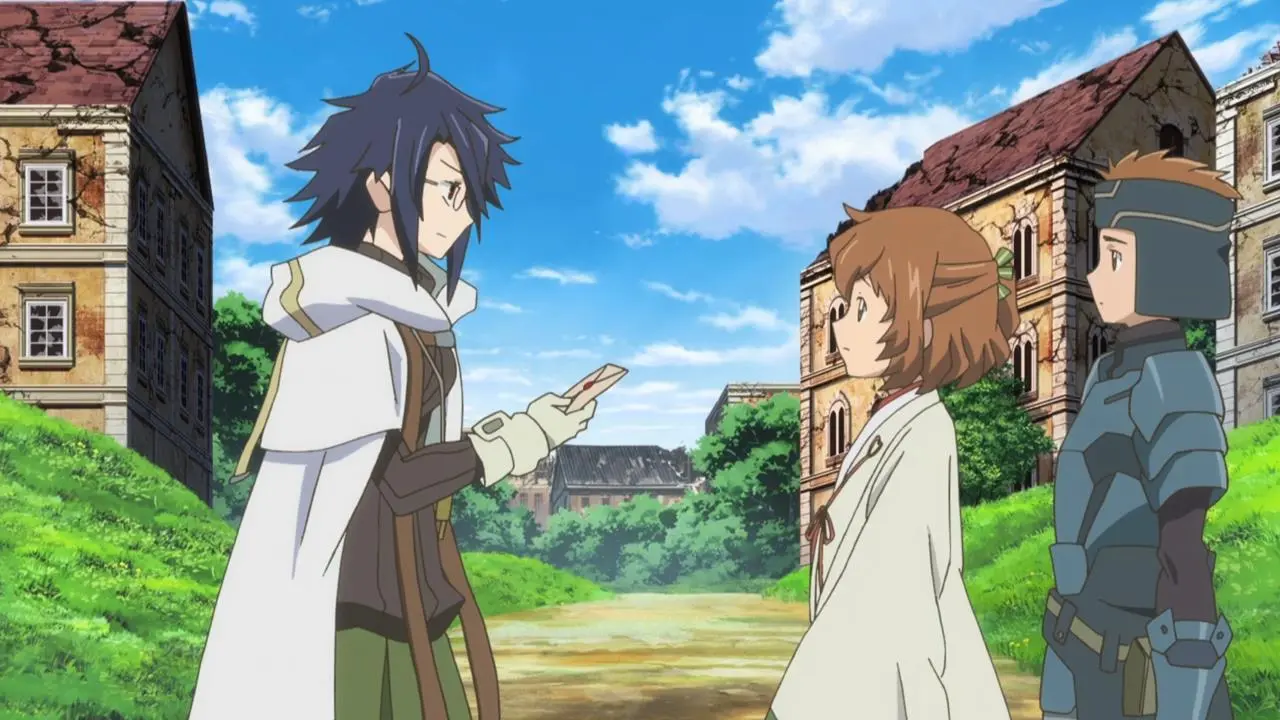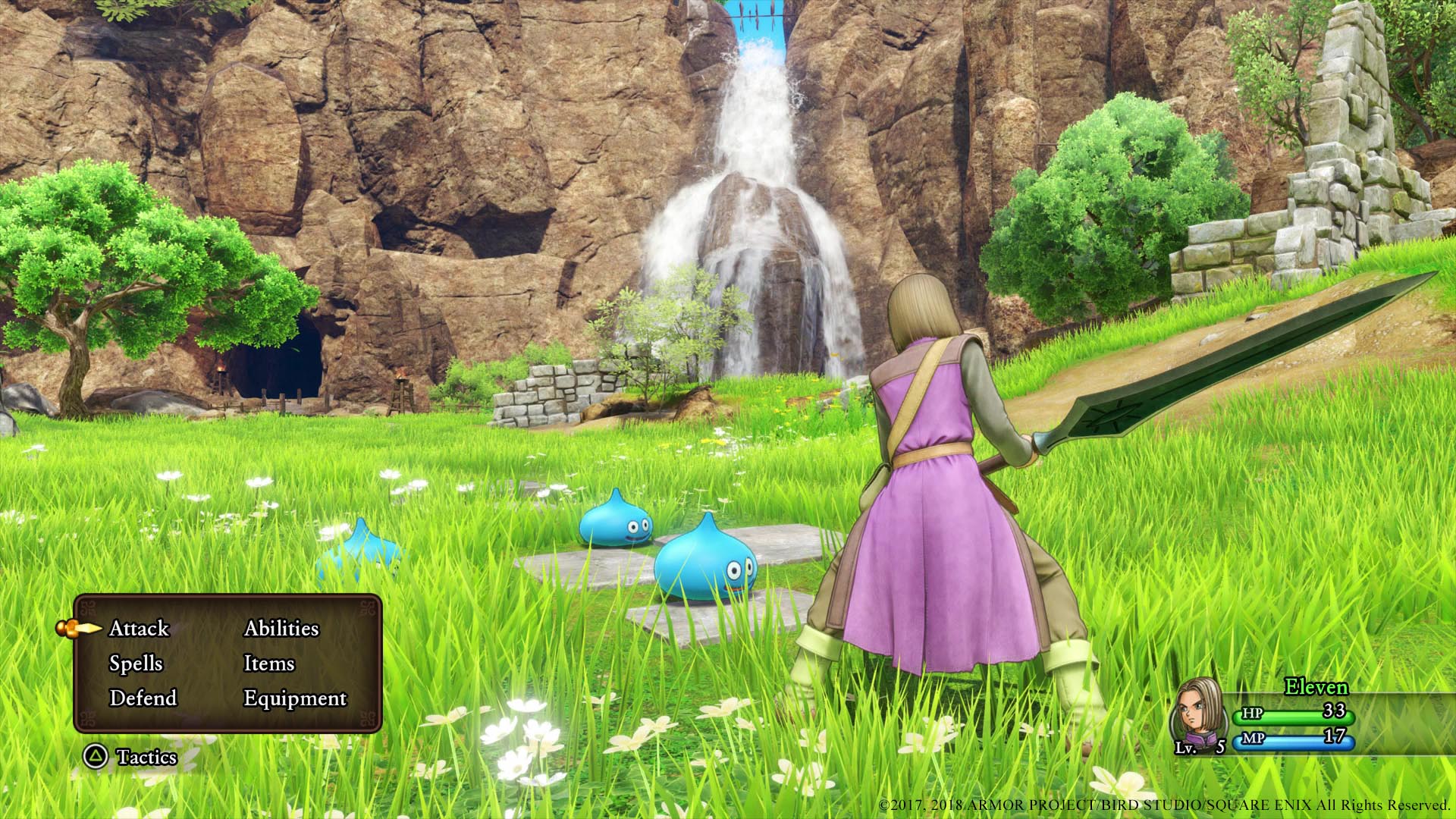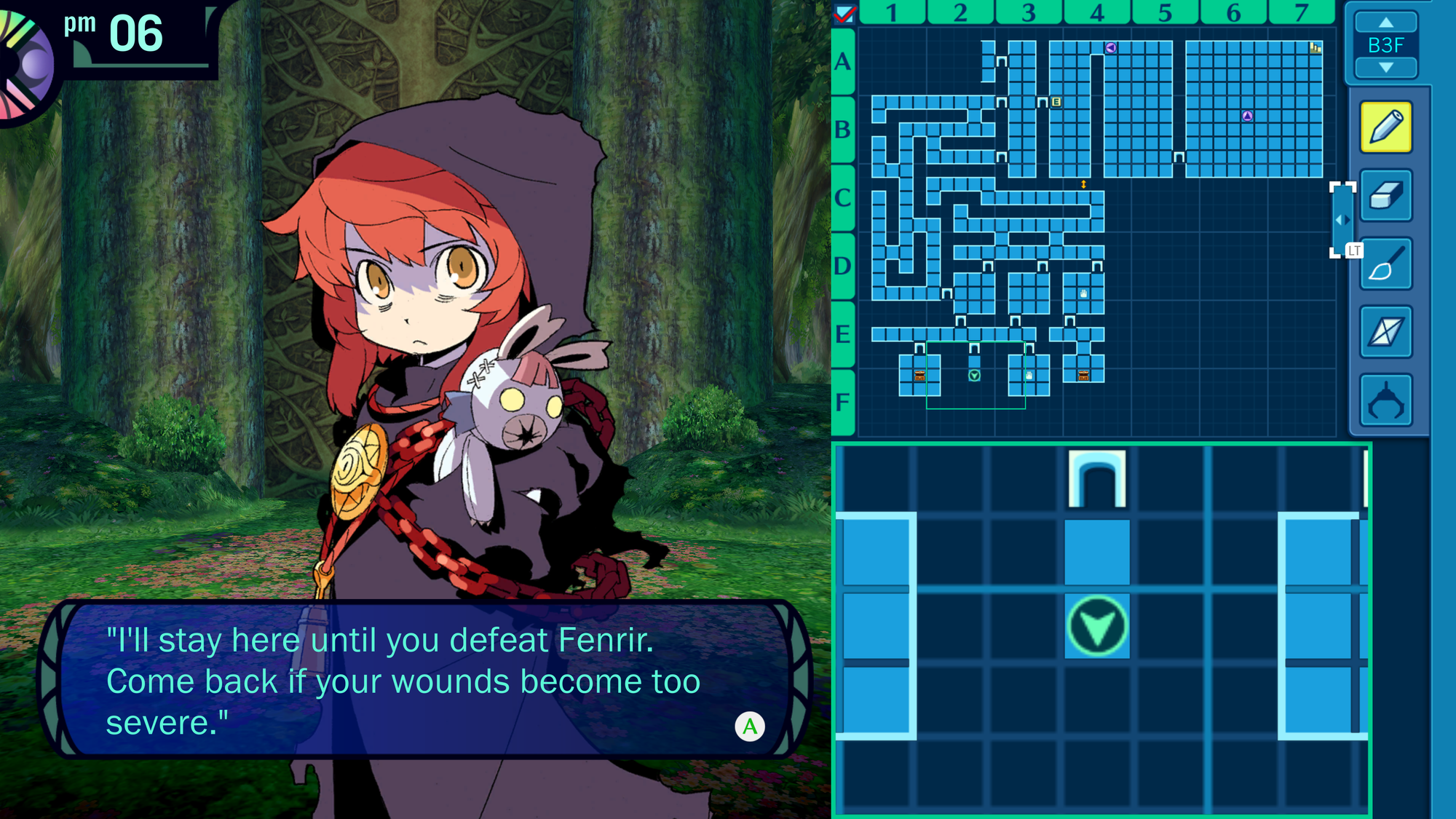Why I Want To Run Fabula Ultima As My Next Campaign
Fabula Ultima: TTJRPG

The Tabletop Role Playing Game (TTRPG) and the Japanese Role Playing Game (JRPG) claim a special place in my heart. If I were to make a case as to why the Role Playing Game (RPG for short) is so great, many of my examples would be from these two categories. I’m sure that this love would be shared by my fellow writers at SUPERJUMP, but also by gamers everywhere. From min-maxing gear in Dragon Quest XI to finding the silliest way possible to subdue a guard in Dungeons & Dragons 5e, I’ve found boundless joy in my adventures that have been facilitated by both man and machine. Fabula Ultima by Emanuele Galletto aims to combine these two loves into a single experience that they coin as a Tabletop Japanese Role Playing Game (TTJRPG).
The game's theme is simple enough to understand for those who are familiar with both genres that Emanuele is trying to combine. A Tabletop experience led by a game master that focuses on player agency by making them feel as though they are adventuring in an anime or JRPG. They do this by giving them world-ending villains, grand destinies, and a videogame-y but fantastical world.
The age-old question still stands though: could I just adapt this in Dungeons & Dragons 5e? The answer is, and will always be, yes. The core principals of transporting your players to your dream Sword Art Online adventure can always be worked into the ever-malleable D&D. However, Fabula Ultima gives the game master and players that read it so much more than a few tips on how to make a Persona or Final Fantasy-style campaign. It gives tips and tools that many seasoned players and game masters I know personally could employ to relieve a lot of headaches.
Preparing A Campaign
One of my favorite parts of this system, and one that immediately sets Fabula Ultima apart from other TTRPG’s is the fact that there is no prep before Session Zero. This is partially because you don’t actually role-play during your Session Zero. The first night that you gather your friends over snacks and drinks will be to make the world, together. This is not going to be popular among seasoned game masters who want to tell their story. And of course, this is not a mandatory part of the game. However, after reviewing the whole section, I can’t imagine role-playing without this preparatory Session Zero style.
Everyone at the table decides the most crucial part of a good JRPG story. How much science fiction, how much fantasy, and how do they interact? There are 8 pillars that the game forces everyone to follow to create that certain magic you felt when Cloud hopped off the train in Final Fantasy 7, or when you first summon your Persona in Persona 3. The rules of the world live to make certain parts mystical and mysterious, and other parts known and understood. So when the players realize that they are the chosen ones to restore balance, they know that they alone have the power to stop a great evil.
A Game Master (GM) can make everything up to here if the players really don’t want the work or responsibility of creating an entire world. In this next part, I recommend that all groups do it together. Character creation in Fabula Ultima starts with all of the players deciding who their group is. Not just how they know each other, but also if they have past tensions or if they are all part of the same military company. This relieves the GM of the common problem of “how do I keep these people together?”
I’ve heard a lot of seasoned game masters say that the best way to keep a group together is to simply not do it. If a player thinks that their character shouldn’t travel with this group anymore, then the character leaves and the player rolls a new character. Fabula Ultima puts keeping the gang together in the players' hands by asking them specifically why they travel together before they even make their characters. Now hopefully, as long as nobody is playing an evil character, the only time a player has to re-roll a character is if their character finishes their story arc and wants to finally go home.
The Classes
Picking a character in Fabula Ultima is a daunting task. When a game starts, every player starts at level 5 and MUST multi-class in at least 2, and no more than 3 classes. Each class can only be leveled up a certain amount and once a player has mastered their classes they are encouraged to pick up a new one. They do this so that every player feels quite unique, and while certain players may overlap in classes, you will probably be the only Dark Knight Arcanist Scholar in your group. Each class can also build wildly different from each other, meaning that both of your Elementalists are doing insane damage but they could be on completely separate elements.
The game also asks the player questions about people like them, and I really like how this gets players thinking about their particular backstory. A common question that the game asks is, “Are there others who can do what you do, or are you special?” I quite enjoy that the book asks this of the player because it allows them to not only create their character but also create the world and how it interacts with them.
My favorite class by far is the Summoner class called the Arcanist. They summon beings to perform tasks or fight in combat, in a way that is very similar to Persona or Final Fantasy 16. Fabula Ultima gives examples of many different types of summons that a player could possibly encounter and also gives the players the tools to create their own that would best suit the world you have all created. The story connotations for the GM show that to get more summons, the player has to search for them in their world. Maybe you make your first boss a fellow Arcanist, and by defeating them your player can absorb their Summon. Or maybe after saving a shrine from sinister forces the guardian of the shrine lends their strength to your Arcanist. Being able to give players progression based on their achievements through your story makes each victory feel that much sweeter, and if your players are Jo-Jo stans they will eat this up.

Running The Game
The Game Master section of the book is an actual gold mine of good tips, made to respect the players and the game master in equal capacity. My favorite examples involve having the GM ask to take a 15-minute break to create an NPC because sometimes it’s okay not to be an expert at improv. It also warns that not every session is going to feel great or fun and that it’s okay to have sessions like those sometimes. A tip that I never expected was to be very transparent with players. I always thought that cooking big surprises and letting the consequences of players' actions catch them off guard was the bread and butter of running a campaign. But the advice here was to say things like “Be careful, if you fail this interrogation, the queen won’t help your party. If it goes south, she might even have you arrested.” Giving players this preface and having solidly defined check roles gives more suspense in the actual scene and allows players to know when it’s time to goof around and when it’s time to get serious.
My favorite tool in this book is the tips on creating new items and monsters. Fabula Ultima already comes pre-loaded with hundreds of example objects and monsters in easy-to-read tables. But it also comes with chapters about how to create your own items that will seem professionally crafted and balanced. This isn’t your old campaign's home-brewed staff of flying, it will be a high-tier magic item that gives you a +2 to one of your stats along with a magical property and the ability to cast a debuff. It takes this approach from its JRPG relatives; while the video game approach is not something everyone will like, it stops things from getting either too out of hand or too difficult.
Emanuele really thought of everything too, even including sections on what to do if your monster mobs are too weak or you accidentally give a player an item that is too strong.
Something I also appreciate about the way this book is written is that the notes remind you to role-play NPCs and characters in believable ways that will get your characters engaged. The section on villains is especially rich in this detail. Reminding that even though your big bad wants to destroy the entire realm, they also were pushed to this point by maybe something relatable and humanizing. If you follow the charts on how to create an NPC, they always have a motive and things about them that lead their decisions. In this game, everything is a stat block, but it also asks the questions that make these characters more than just a Strength/Might warrior.

Dungeons & Scenes
This is probably my favorite difference that the game has made to set itself off from the mainstay classic Dungeons & Dragons. Fabula Ultima uses a system called Clocks to monitor any kind of problem that is not measurable by a health bar. If there is a cave-in that is imminent, the game master sets a 6-section clock which destroys the cave when it completes. This works kind of like a lair action in D&D except the villains can do things to influence how fast the clock fills, the players can make the clock move in reverse, and the clock can be anything from filling a room with gas to showing how convinced a monarch is in conversation.
This entails that you can take the turn-based combat rules and apply them to any situation in which the players face opposition. The game master can now turn on turn-based mode in a conversation if it is getting out of hand and now suddenly everybody has an equal chance to talk and influence the game.
Fabula Ultima also explicitly states that dungeons can be anything you want, be is a triathlon or a courtroom trial, as long as it is a connected string of challenges that the players have to face. There are also recommended rewards to give out which is really helpful for those times when your players say “I want to loot the room!” and you have completely forgotten to put some gold and an item at the end of the cave.
This malleability means that most play styles are represented. You can run this game as a hardcore dungeon crawl with mostly combat, or you can have your confrontation be mostly entrenched within your story's drama. Even though JRPGs can occasionally be a grind, and TTRPGs can have those long sessions trapped in a cave, Fabula Ultima gives you the freedom to get to the good parts.

Combat
Combat in Fabula Ultima is much more reminiscent of a JRPG than a TTRPG. There is no distance away from each other, and there’s no movement speed. You perform your action and are assumed to approach the enemy at the speed of Zenitsu, and then turn moves to the next combatant. This can get complicated once your characters' moves become advanced, and a lot of the combat moves also ask your players to role-play a little bit which I think is fantastic.
Other than this, the combat feels similar to other role-playing games. One of the details states that every move should be big and each attack should feel like you're watching an anime. This inspires a lot of player storytelling by not only asking players how they want to finish enemies, but how they want to do every move they have.

Conclusion
I could go on and on about Fabula Ultima. I didn’t even get to the very cool hybrid stat system that uses dice size rather than values, or how you can role-play your way into skill check successes. Whether you will play this game or not I fully believe that this book is worth a read if only just to learn some different ways to approach TTRPGs. This grabbed me because of its promise of a TTRPG with inspiration from Final Fantasy and Studio Ghibli. I fell in love with this rule set because of its respect for the players and GM, and its willingness to put fun and weaving a good story above all else. This game will mostly appeal to a group filled with Game Masters but I would also put this game in front of anyone whether it's their first campaign or their twentieth.
Give Fabula Ultima a read, end of story.
